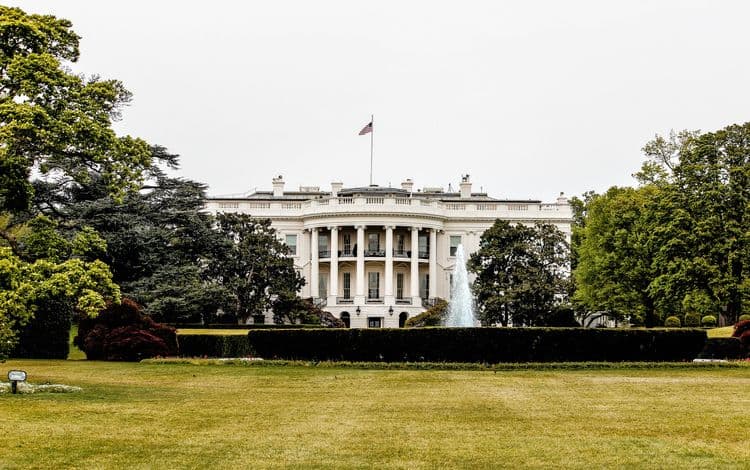The Infrastructure Plan
President Biden's new infrastructure plan is to put money into transportation, renewable energy, manufacturing, and climate change. The proposal will cost $2.25 trillion and the funds will come from raising taxes on U.S. corporations.
The plan will be paid by raising corporate taxes from 21% to 28% and increasing the global minimum tax on U.S. corporations from 13% to 21%. The Biden administration is also planning a second proposal which could cost another $1 trillion that will be released in April. The second plan will be funded by tax increases on wealthy Americans and will focus on domestic issues like health care, providing universal kindergarten, extending the child tax credit, and offering paid family leave.
Transportation
The transportation plan will spend $621 billion on roads, bridges, rails, ports, waterways, airports, public transportation, and electric vehicles. $115 billion of the money would go toward 20,0000 miles of highways, roads, and main streets that need the most repairs. Also, it includes 10,000 smaller bridges. $85 billion will go to the public transportation system and help agencies expand their systems to meet demand. $80 billion will be used to address Amtrak’s backlog repair and modernizing the Northeast Corridor which is the line that connects Washington, New York City, and Wilmington, Delaware. $25 billion would go to airports and $17 billion to waterways, ports, and ferries. Lastly, $20 billion will go towards a new program that would connect neighborhoods, cut off old investments, and bring in new projects that would increase opportunity, advance racial equity, environmental justice, and promote affordable success.
Electric Vehicles
The Electric vehicles plan includes $174 billion to invest in electric vehicles. This will encourage automakers to use domestic supply chains for raw materials, parts, and retool factories so they can compete globally. It will also support American workers to make batteries and EVs. The plan will provide sales rebates and tax incentives to stimulate Americans to buy electric vehicles, and offer grants and programs to state and local governments to increase the number of electric vehicle chargers that are available. The plan will also replace 50k diesel transit vehicles and replace 20% of school busses with electric vehicles.
Manufacturing
Biden’s proposal will call on Congress to invest $300 billion to increase American manufacturing, allocating $50 billion for semiconductor manufacturing and research and $50 billion for the National Science Foundation to create a technology directorate. Another $50 billion will be used to create a new office at the Department of Commerce that will be used to monitor domestic industrial capacity and funding investments to support the production of critical goods.
Schools
$100 billion will be used to build public schools and upgrade existing buildings, mainly better ventilation systems and indoor air quality. The money will also include investing in energy-efficient and electric school buildings to decrease greenhouse gas emissions. $12 billion would go to states to improve physical and technological infrastructure at community colleges. Another $25 billion will go towards upgrading child care facilities and increase the supply of child care in places that need it.
Other Parts Of The Plan
$30 billion of the plan will go towards research and development. This will be used for future pandemics. The money will be used over four years to make investments in medical countermeasures manufacturing, research and development, bio preparedness, and biodiversity.
$111 billion will go to rebuild the nation’s water infrastructure. It would replace all of the lead pipes and service lines so children’s health can improve.
$213 billion would be used to build 2 million affordable homes. Tax credits will be included to build housing for low-income families and $40 billion for public housing.
$400 billion would be provided to caregiving for the elderly and disabled Americans. It would also expand long-term care services through Medicaid. $18 billion will be directed to the Veterans Affairs hospitals and $10 billion for federal buildings.
How Are We Paying For Biden's New Infrastructure Plan?
Corporate Taxes
To pay for Biden’s new infrastructure plan the corporate tax rate will increase from 21% to 28%. Previously, during Trump’s presidency, he slashed corporate tax and the rate paid by U.S. businesses from 35% to 21%. The plan will also have a 15% minimum tax on the corporation’s profits for financial reporting purposes.
International Taxes
Another way to pay for this plan is to create a minimum tax on the profits U.S. corporations earn outside of the U.S. which would increase the rate to 21% from 13%.
Oil And Gas Companies Tax Breaks Will Be Eliminated
Special preferences will be eliminated for the fossil fuel industry which will include oil and gas companies and would require those companies to pay the Superfund Trust Fund to cover costs of pollution clean-ups.
IRS Audits
The New plan will have additional funding to the Internal Revenue Service to make sure the agency is capable of increasing tax audits on corporations.
First Union Lending wants to help. We work with small businesses across the US, getting them the cash they need when they need it. Some clients get funded in as little as two days—yes, we do work that fast. We offer short-term loans, lines of credit, and SBA loans among other programs. If you need additional capital for any reason, we can most likely help. Call today!
